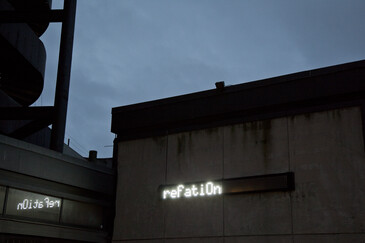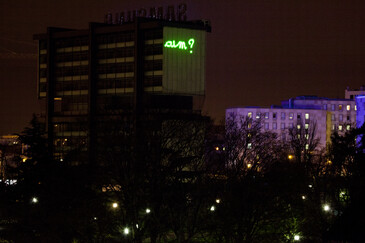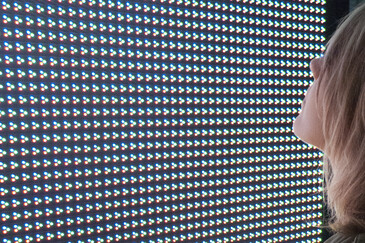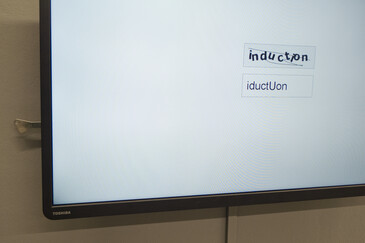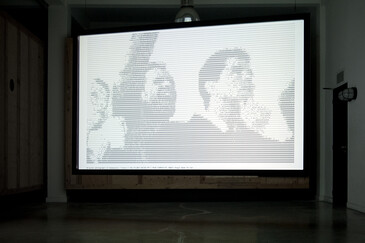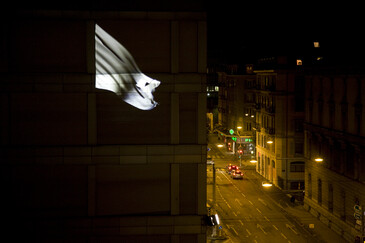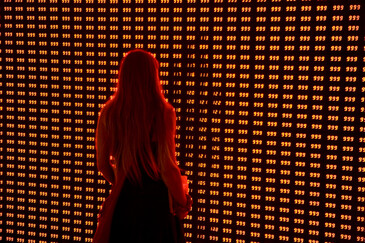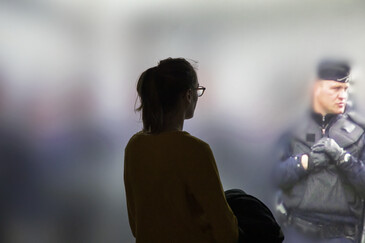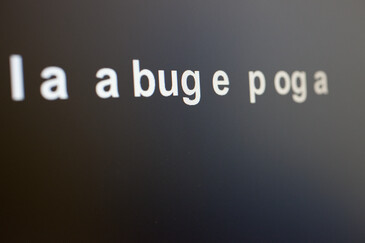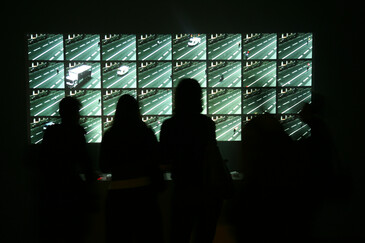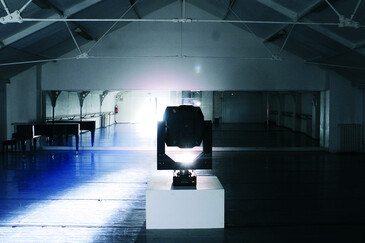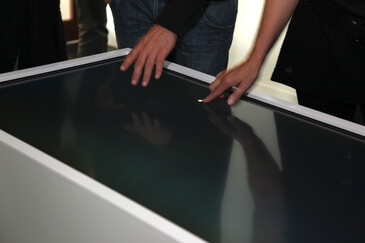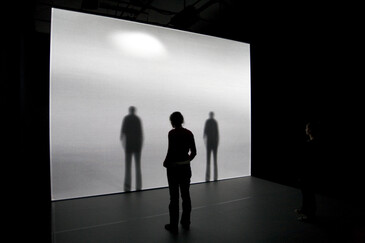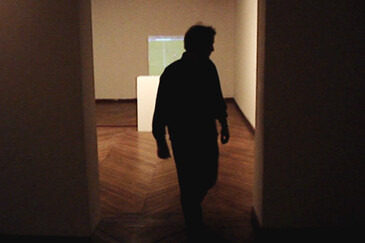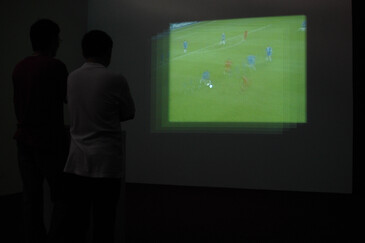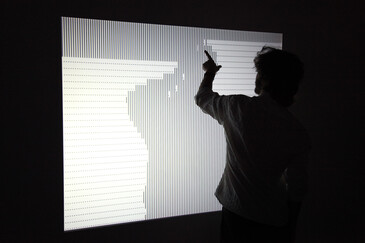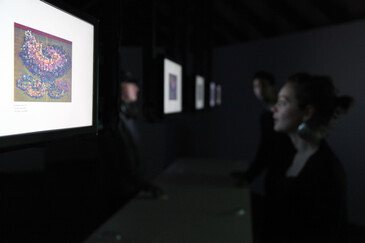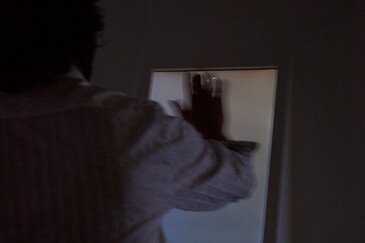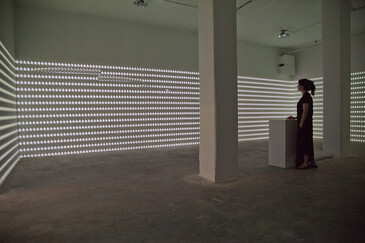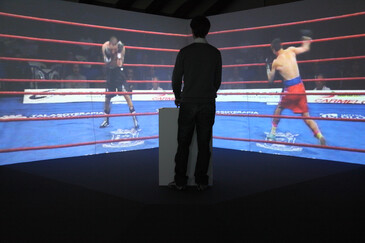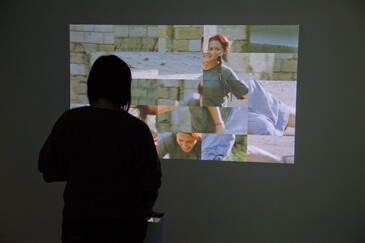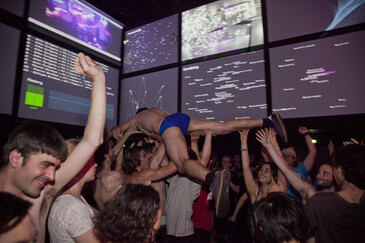

What's More With Many
Interactive installation, 2001
Samuel Bianchini
Programming: Oussama Mubarak
+ in english: www.dispotheque.org
+ in french: www.dispotheque.org
Part of the Hors Pistes Exhibition
Curated by Géraldine Gomez
Centre Pompidou, Paris
21 January - 6 February 2010
Free admission
+ in english or french: www.centrepompidou.fr
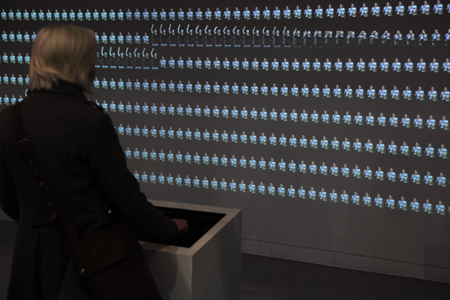
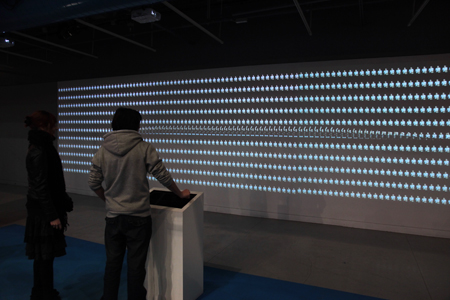
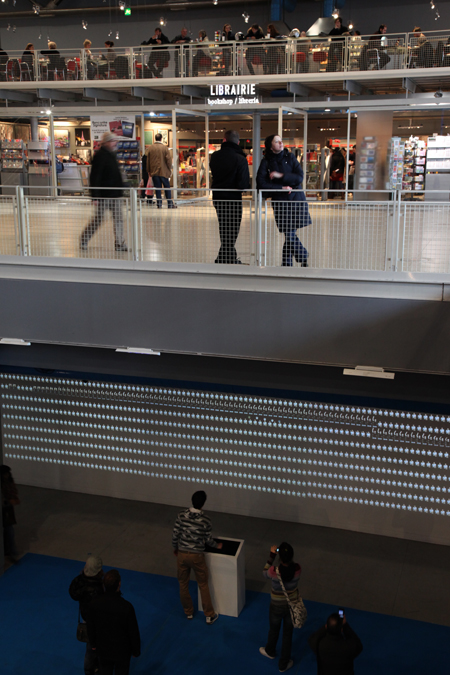
What's More With Many, 2001. Samuel Bianchini. Centre Pompidou, January 2011
Photographs: © Samuel Bianchini - ADAGP

Keywords
USB key artwork, 2011
A new artwork of Samuel Bianchini commissioned by the French Ministry of Culture and Communication, Centre national des arts plastiques
for the “Pop Up” program curated by Pascale Cassagnau
Software engineering: Oussama Mubarak
With the counseling of Bertrand Couasnon, Imadoc Team (IMAges and DOCuments) from the IRISA laboratory, Rennes
Thanks to Rafael W. for the “Extended Levenshtein algorithm” library
http://sourceforge.net/projects/j-levenshtein
and Ronald B. Cemer for the library “Java OCR”
http://javaocr.sourceforge.net
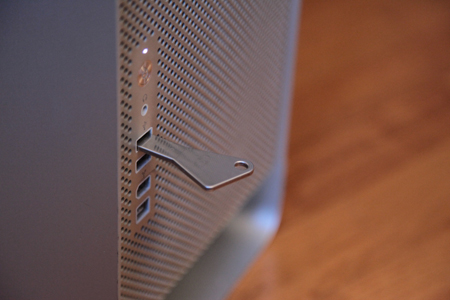
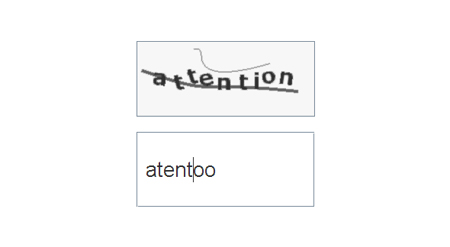
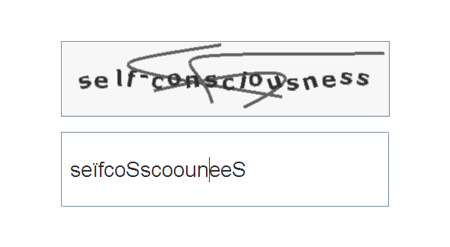
[French below]
Keywords was designed for a USB key. A program is loaded on the key and seems to have no other purpose than unlocking the USB key and permitting access to its content. This access however is protected by a « Captcha » test which is a type of Turing test meant to determine whether a human being or a machine is trying to unlock the key. The aim of such a protection, nowadays very common on the internet, is to prevent automated access, requests, registrations… A human being is required to identify a series of machine-generated characters which are distorted in such a way as to resist attempts made by automatic identification programs. The user has to key in the characters shown on-screen so as to give evidence of its accurate interpretation.
This is the process which Keywords implements, except that it is limited to the capacity of the machine onto which the USB key is used. Launched from the key, the program generates a Captcha on the screen. But far from being random, the series of characters represented in the Captcha form words, in fact keywords taken from the area of cognitive sciences, a vast disciplinary field which aims to combine research in hard sciences and the humanities, quantitative and qualitative aspects, man and machine. Those keywords, like the ones that can be read, for instance, in introductory abstracts of scientific publications, open access as they allow sorting and classification : attentiveness, autism, behaviorism, cognitive emotion, intelligence testing, intensional semantics, lexical content, motivation, objective mode, predicate, qualia, reductionism, self-consciousness, verification, etc …
A second program on that key will then attempt to interpret the characters in order to key them in automatically, below the distorted ones. The hardly legible Captchas are directly displayed and then tentatively matched with an automated response, character after character, by the second program. Though the machine fails in its interpretation, it seems to behave like a hesitant human being. Admittedly these trials are unlikely to be successful as they produce inaccurate and useless words, yet the program designed to analyse shapes and characters strives to get as close as possible to the key of an accurate interpretation.
Word after word, attempt after attempt, the double series of words displayed on the screen gradually allows the perception of differences, suggesting comparison. It reveals the difficulties in this battle of the machine with itself, in the process of pretending to act as a human being that struggles to unlock a USB key by using keywords which are as many passwords.
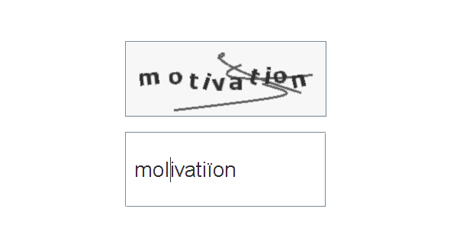
Keywords est une création pour clé USB. Un programme est chargé sur une clé USB ; il semble n'avoir qu'une fonction principale : tenter d'ouvrir la clé USB, d'accéder à son contenu. Mais cet accès est verrouillé par une protection de type “Captcha” , une forme de test de Turing qui doit permettre de déterminer s'il s'agit bien d'un être humain - et non d'une machine - qui souhaite ainsi ouvrir la clé. Cette protection aujourd'hui très courante sur internet est un moyen d'éviter des accès, requêtes, inscriptions, …, automatiques. Elle oblige un humain à reconnaître une suite de caractères générés et déformés par la machine afin de résister aux attaques de logiciels de reconnaissance automatique de caractères. L’utilisateur doit alors saisir manuellement les caractères perçus pour prouver leur bonne interprétation.
Keywords propose de mettre en œuvre ce principe, mais en le limitant aux seules capacités de la machine sur laquelle la clé USB est insérée. Lancé à partir de la clé, le programme génère à l'écran un Captcha. Loin d'être le fruit du hasard, les suites de caractères représentées ici, dans le Captcha, sont des mots, des mots-clés utilisés dans le domaine des sciences cognitives, vaste champ disciplinaire qui tente de concilier sciences exactes et sciences humaines, quantitatif et qualitatif, machinique et humain. Ces mots-clés, tels ceux donnés en introduction de toutes publications scientifiques, sont autant de points d'entrée sur celles-ci puisqu'ils en permettent le classement et l’accès : attention, autism, behaviorism, cognitive emotions, intelligence testing, intensional semantics, lexical content, motivation, objective mode, predicate, qualia, reductionism, self-consciousness, verification, etc.
Un autre programme, émanant lui aussi de la clé, tente alors d'interpréter ces caractères pour les saisir, automatiquement, en dessous de ceux déformés. À l'affichage vif des mots peu lisibles, des captchas, répond la saisie automatique mais incertaine, caractère après caractère, de la réponse apportée par le second programme. À défaut de réussir l'interprétation, la machine semble se comporter comme un humain hésitant. Si ces tentatives ont peu de chances d'aboutir, produisant de vains mots approximatifs, le programme d'analyse de formes et de reconnaissances de caractères est pourtant développé pour tenter de s'approcher au plus près de la bonne interprétation.
Mot après mot, tentative après tentative, ces doubles séries de mots à l'écran, laissent percevoir leur différence, permettent la comparaison, rendant visible les difficultés, la lutte d'une machine avec elle-même essayant de se faire passer pour un être humain, afin d'ouvrir son périphérique, une clé, à l'aide de mots-clés qui sont autant de mots de passe.
| Demo video - 15mn - "HQ" recommended - Plugin Flash and high band required |
